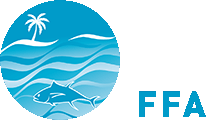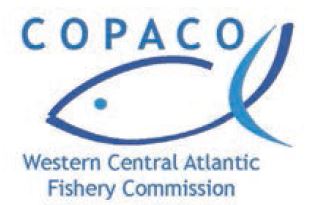Ocean partnerships for sustainable fisheries and biodiversity conservation: models for innovation and reform
Objective
To develop business models for catalyzing investment into long-term sustainable management of several different fisheries, each spanning areas within and beyond national jurisdictions.
This project, under the World Bank coordination, focuses on three main areas, and is executed regionally through the following sub-projects:
- The development of pilot project activities for sustainable fisheries in priority areas that can be taken to scale over a longer time horizon.
- Bay of Bengal region - small-scale tuna longline fisheries. More information about this sub-project can be found here.
- Western and Central Pacific Ocean - tuna fisheries prosecuted mainly by distant-water fishing nations under the Parties to Nauru Agreement's Vessel Day Scheme.
- Western Central Atlantic/Caribbean region - commercial, recreational and artisanal fisheries competing to capture declining stocks of billfish species. More information about this sub-project can be found here.
- Eastern Pacific Ocean - increasing the sustainability of the skipjack tuna purse seine fisheries.
- Providing innovation support to the four Project regions
- Innovation Support Facility (ISF) - supporting the regionally executed sub-projects through innovative complementary activities that directly inform fisheries management and business planning at the pilot sites. Led by Conservation International (CI).
- Innovation Support Facility (ISF) - supporting the regionally executed sub-projects through innovative complementary activities that directly inform fisheries management and business planning at the pilot sites. Led by Conservation International (CI).
- Evaluation of pilot design, innovative tools and lesson learning
- A global think tank (GloTT) - providing high level technical advice to regional projects and developing a major technical report on innovations in the governance of highly migratory fisheries. Led by World Wildlife Fund Inc. (WWF-US).
About
This Project aims to support future pilot public and private sector investment in better managed fisheries targeting migratory stocks that straddle developing countries' coastal jurisdictions (Exclusive Economic Zones) and areas beyond national jurisdiction. Specifically, through the six sub-projects addressing economic, social and environmental inefficiencies within their involved fisheries. This will be achieved through reforms in the ways fisheries are managed, with a particular focus on innovative institutions that include those that foster effective rights-based and co-management of fisheries. Consequently, all Projects contribute to increasing sustainable and net economic benefits to coastal and island developing countries, while enhancing ocean biodiversity conservation.
The Project contributes directly to the objectives of both the ABNJ Program and the recently convened Global Partnership for Oceans (GPO). Co-financing has been made available through GPO partners and includes existing and planned World Bank IDA/IBRD4 investments.







